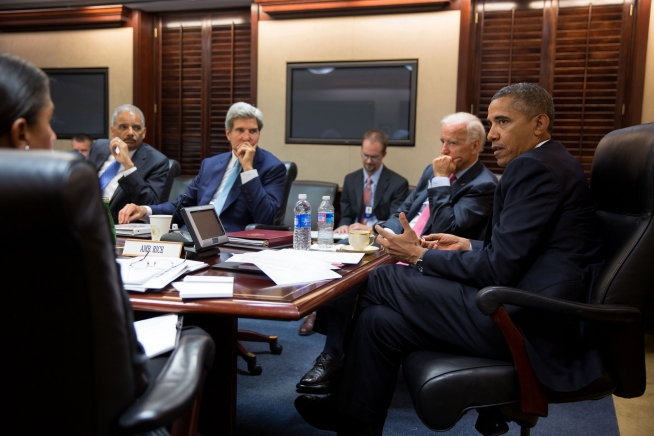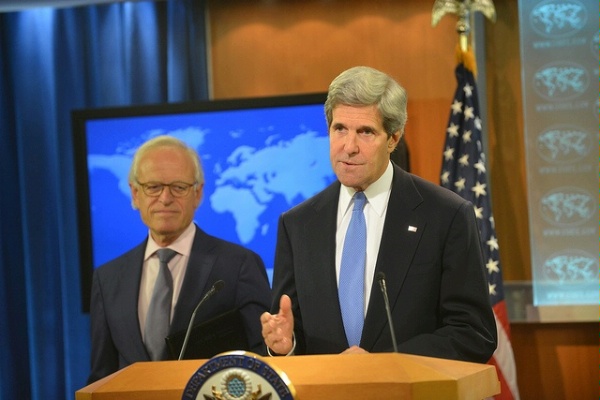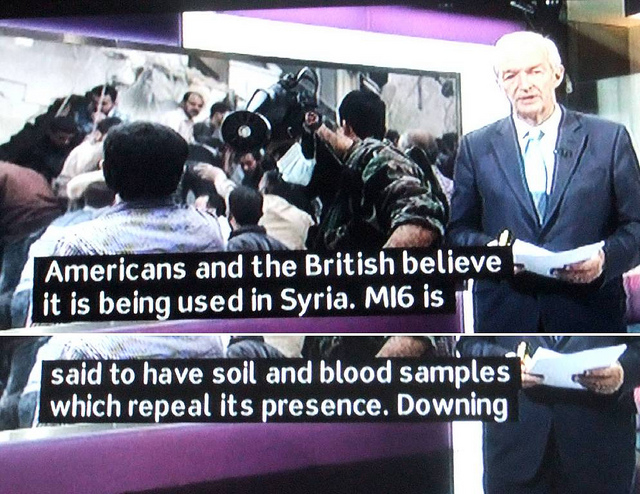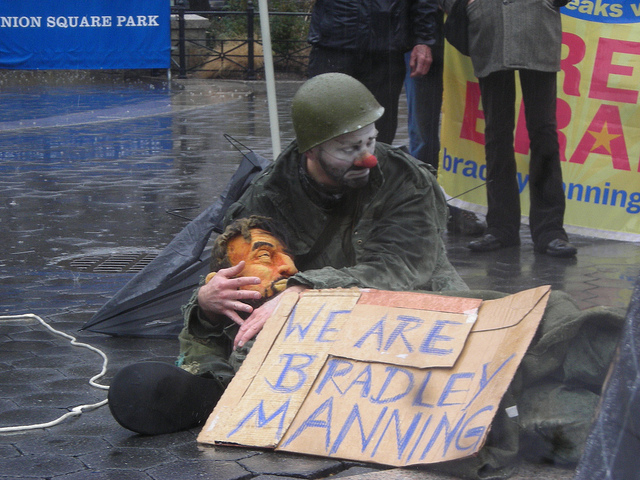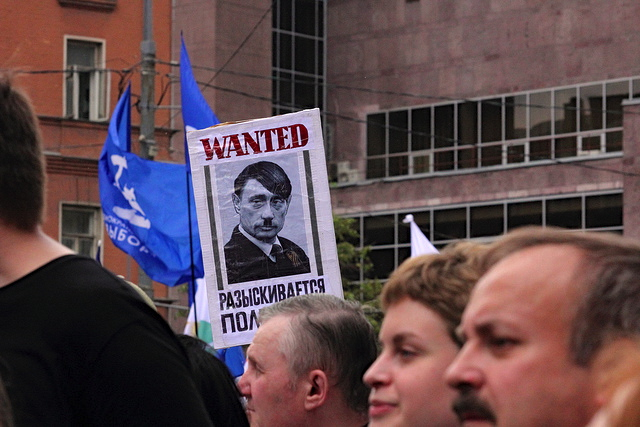The US is desperately trying to maintain the illusion of functionality at the revived Israeli-Palestinian peace talks. But reality is intruding. I explore in my latest article at The Third Way. (More…)
Author: Mitchell PlitnickMitchell Plitnick is the former Director of the US Office of B’Tselem and was previously the Director of Jewish Voice for Peace. He is a widely published and respected policy analyst. Born in New York City, raised an Orthodox Jew and educated in Yeshiva, Mitchell grew up in an extremist environment that passionately supported the radical Israeli settler movement. Plitnick graduated with honors from UC Berkeley in Middle Eastern Studies and wrote his thesis on Israeli and Jewish historiography.
Mitchell Plitnick is the former Director of the US Office of B’Tselem and was previously the Director of Jewish Voice for Peace. He is a widely published and respected policy analyst. Born in New York City, raised an Orthodox Jew and educated in Yeshiva, Mitchell grew up in an extremist environment that passionately supported the radical Israeli settler movement. Plitnick graduated with honors from UC Berkeley in Middle Eastern Studies and wrote his thesis on Israeli and Jewish historiography.
Attacking Syria gets more surreal every day. The abstract nature of that debate, in the United States, as if somehow real lives, Syrian lives, were not hanging in the balance is appalling. And what is most starkly absent from the discussion is any apparent concern over a civil war that has already caused over 100,000 deaths, created some six million refugees and internally displaced persons and promises that the worst is yet to come. (More…)
President Obama shocked many with his announcement that, despite the fact that he had decided to strike Syria, he was going to seek authorization from Congress. At LobeLog, I examine some of the implications for US politics and foreign policy, as well as the immediate meaning for an attack on Syria. (More…)
On Monday, it will be Labor Day, a major holiday in the United States. Except for a few pithy Facebook posts or bumper stickers, I don’t expect to see an actual celebration of labor, much less the labor movement, which is edging closer every day to extinction. And yet, in 2013, the economic condition of American workers is worse than at any time since the Great Depression. (More…)
While all eyes are on Syria, and a few on Egypt, no one is paying attention to the supposedly re-started Israeli-Palestinian peace talks. That lack of attention is just what John Kerry said he wanted. But what information we do have adds up to one message: these talks, which already had everything stacked against them, have run into even more problems. I explore in this new piece. (More…)
My latest piece of reporting for Inter Press Service: Israel, AIPAC and their fellow travelers are already hard at work on the next 10-year aid package, which would start in 2017. Aid to Israel is sacrosanct in Washington, but the request for an upgrade faces some new challenges this time. But AIPAC has a powerful tool in a 2008 law passed by Congress. (More…)
My latest piece at LobeLog, where I frequently write on US foreign policy, examines the inadequacy of the current system of international law. It has gotten so ineffective that it is now more hindrance than help. The crisis in Syria shines a spotlight on the problem. (More…)
UN inspectors are going to investigate allegations of a major chemical weapons attack on Syrian civilians by the regime. It’s largely an exercise. The United States has already decided that the red line Obama drew many months ago has been crossed. That line is worth questioning. (More…)
We now know that it will be Chelsea, not Bradley, Manning who will be serving a 35-year sentence in military prison for daring to expose US war crimes in Iraq. That revelation has brought Manning back into the headlines, and overall, one has to be pleased with the reception. (More…)
I wrote recently about the apoplectic reaction of some members of Russia’s Jewish community to Stephen Fry’s very accurate comparison of the atmosphere in Germany at the beginning of Adolph Hitler’s Fascist regime and Vladmir Putin’s incitement to hate and violence against LGBT people in Russia. (More…)
Chemi Shalev is one of Ha’aretz‘ best reporters, and his commentary Strange Bedfellows makes for valuable reading. It describes how the diminished role the US is playing in the Middle East is being interpreted, not without merit, as US weakness, and that is causing so-called “moderate Arab states” (which is a euphemism for those states which are willing, however clandestinely, to work with Israel) to increase their cooperation with Israel. (More…)
It was early May in the Russian city of Volgograd. Vladislav Tornovoi, a 23-year-old man, was drinking with a couple of other guys when he made a fatal mistake. He told his drinking buddies that he was gay. By the end of that night, Tornovoi had been brutally beaten, sexually tortured and, finally, killed. (More…)


